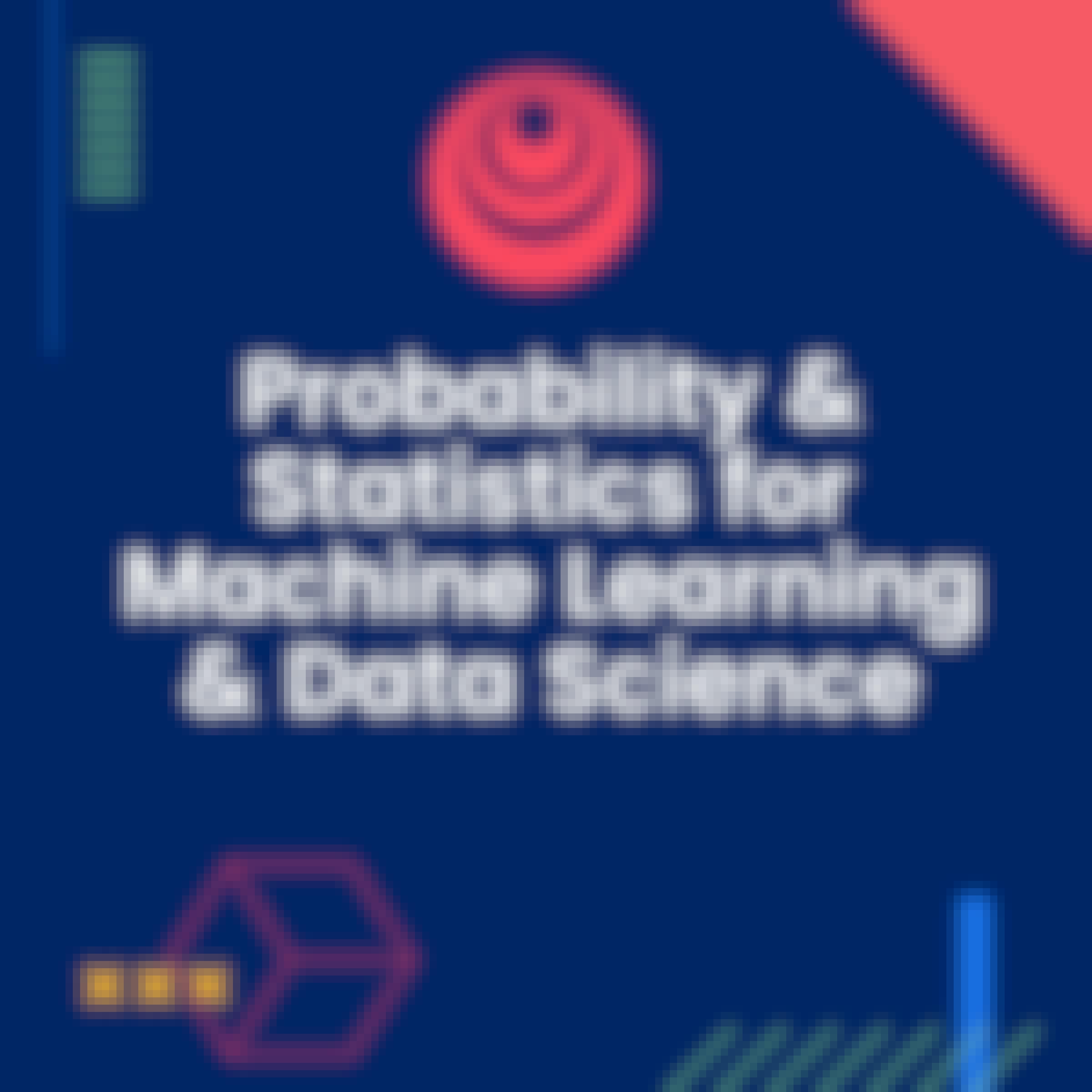Filter by
SubjectRequired
LanguageRequired
The language used throughout the course, in both instruction and assessments.
Learning ProductRequired
LevelRequired
DurationRequired
SkillsRequired
SubtitlesRequired
EducatorRequired
Explore the Statistics Course Catalog

 Status: Free
Status: Free
Stanford University
Skills you'll gain: Descriptive Statistics, Statistics, Statistical Methods, Sampling (Statistics), Statistical Analysis, Data Analysis, Statistical Hypothesis Testing, Regression Analysis, Statistical Inference, Probability, Exploratory Data Analysis, Quantitative Research, Probability Distribution, Correlation Analysis


University of Amsterdam
Skills you'll gain: Descriptive Statistics, Statistical Hypothesis Testing, Statistical Software, Probability Distribution, Sampling (Statistics), Correlation Analysis, Probability, Sample Size Determination, Statistics, Regression Analysis, Statistical Inference, Statistical Analysis


University of California, Santa Cruz
Skills you'll gain: Time Series Analysis and Forecasting, Bayesian Statistics, R Programming, Forecasting, Statistical Inference, Statistical Modeling, Technical Communication, Data Analysis, Probability, Statistical Machine Learning, Statistical Methods, Statistical Analysis, Advanced Analytics, Microsoft Excel, Markov Model, Probability Distribution, Probability & Statistics, Unsupervised Learning, Regression Analysis, Predictive Modeling


University of Michigan
Skills you'll gain: Statistical Hypothesis Testing, Sampling (Statistics), Statistical Modeling, Statistical Inference, Statistical Methods, Bayesian Statistics, Data Visualization, Statistics, Matplotlib, Statistical Software, Probability & Statistics, Statistical Analysis, Jupyter, Statistical Programming, Regression Analysis, Data Visualization Software, Predictive Modeling, Exploratory Data Analysis, Descriptive Statistics, Data Analysis


Rice University
Skills you'll gain: Statistical Hypothesis Testing, Microsoft Excel, Pivot Tables And Charts, Regression Analysis, Descriptive Statistics, Probability & Statistics, Graphing, Spreadsheet Software, Probability Distribution, Business Analytics, Statistical Analysis, Statistical Modeling, Statistical Inference, Business Mathematics, Excel Formulas, Data Analysis, Data Presentation, Statistics, Analytical Skills, Estimation


Johns Hopkins University
Skills you'll gain: Statistical Hypothesis Testing, Sampling (Statistics), Regression Analysis, Bayesian Statistics, Statistical Analysis, Probability & Statistics, Statistical Inference, Statistical Methods, Statistical Modeling, Linear Algebra, Probability, R Programming, Biostatistics, Data Analysis, Data Science, Probability Distribution, Mathematical Modeling, Data Modeling, Applied Mathematics, Predictive Modeling


DeepLearning.AI
Skills you'll gain: Descriptive Statistics, Bayesian Statistics, Statistical Hypothesis Testing, Probability & Statistics, Sampling (Statistics), Probability Distribution, Probability, Statistical Inference, A/B Testing, Statistical Analysis, Data Science, Exploratory Data Analysis, Data Analysis, Statistical Visualization

Skills you'll gain: Bayesian Statistics, Descriptive Statistics, Statistical Hypothesis Testing, Statistical Inference, Sampling (Statistics), Data Modeling, Statistics, Probability & Statistics, Statistical Analysis, Statistical Methods, Statistical Modeling, Marketing Analytics, Tableau Software, Data Analysis, Spreadsheet Software, Quantitative Research, Analytics, Descriptive Analytics, Time Series Analysis and Forecasting, Regression Analysis


University of Amsterdam
Skills you'll gain: Qualitative Research, Statistical Hypothesis Testing, Scientific Methods, Descriptive Statistics, Statistical Inference, Statistical Analysis, Statistical Software, Probability Distribution, Research, Correlation Analysis, Research Design, Sampling (Statistics), Research Reports, Science and Research, Probability, Interviewing Skills, Data Analysis, Sample Size Determination, Statistical Methods, Social Sciences


Google
Skills you'll gain: Statistical Hypothesis Testing, Sampling (Statistics), Descriptive Statistics, Data Analysis, Statistical Analysis, Probability Distribution, Statistical Methods, Statistics, Statistical Inference, Probability, Bayesian Statistics, Statistical Programming, A/B Testing


Johns Hopkins University
Skills you'll gain: Shiny (R Package), Rmarkdown, Regression Analysis, Leaflet (Software), Exploratory Data Analysis, Statistical Inference, Predictive Modeling, Statistical Hypothesis Testing, Plotly, Machine Learning Algorithms, Interactive Data Visualization, Probability & Statistics, Statistical Machine Learning, Feature Engineering, Statistical Analysis, Statistical Modeling, Probability, Correlation Analysis, Data Science, Data Analysis
 Status: Free
Status: Free
University of Cape Town
In summary, here are 10 of our most popular statistics courses
- Introduction to Statistics: Stanford University
- Basic Statistics: University of Amsterdam
- Bayesian Statistics: University of California, Santa Cruz
- Statistics with Python: University of Michigan
- Business Statistics and Analysis: Rice University
- Advanced Statistics for Data Science: Johns Hopkins University
- Probability & Statistics for Machine Learning & Data Science: DeepLearning.AI
- Statistics Foundations: Meta
- Methods and Statistics in Social Sciences: University of Amsterdam
- The Power of Statistics: Google











